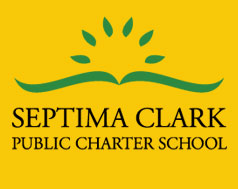NACSA Blog
Press Releases
 |
A Call for Quality: National Charter School Authorizers Group Says More Failing Schools Must Close For Reform to Fully SucceedWhile a great many public charter schools are among their states’ best performers and are paving the way for educational innovation across the U.S., too many are failing to provide a quality … |
 |
National Association of Charter School Authorizers Issues Statement on Georgia Charter School ReferendumGreg Richmond, president and CEO of the National Association of Charter School Authorizers, issued the following statement today on the passage of Georgia’s charter school referendum: “By amending the constitution, voters have … |
 |
National Association of Charter School Authorizers Issues Statement on Presidential ElectionGreg Richmond, president and CEO of the National Association of Charter School Authorizers, issued the following statement today on the results of the presidential election: “Like every president for the past twenty … |
 |
National Charter Organization Releases New Standards for AuthorizersThe National Association for Charter School Authorizers released today its 2012 Principles & Standards for Quality Charter School Authorizing, providing new standards for authorizers—the entities tasked with approving, monitoring and renewing the … |
 |
Mississippi’s New Charter Law a Win for State’s ChildrenGreg Richmond, president and CEO of the National Association of Charter School Authorizers, today issued the following statement regarding Governor Phil Bryant’s signature of Mississippi’s new charter school law: “Today, the future … |
 |
Access is Not OptionalBy design, charter schools are supposed to be open to all students. The idea is that rather than gaining admission based on their zip code or test scores, charter school students are … |
 |
Accepting AccountabilityIt is always disappointing when charter schools that are not meeting their performance expectations fight efforts to hold them accountable. We shouldn’t forget, though, that some charter schools will live up to … |
 |
Four Tips for Cage-Busting AuthorizersRick Hess’s new book, Cage-Busting Leadership is out. Quality charter school authorizing often involves a lot of cage-busting. The vast majority of authorizers work in school districts–systems that are set up in … |
 |
Joint–Not-Central–Planning for All DC Public SchoolsIn the second post of a two-part series, Scott Pearson, Executive Director of the D.C. Public Charter School Board, addresses another big question raised in Emma Brown’s recent article on charter school growth in the nation’s capital: … |
 |
Silver Bullets and UnicornsSilver bullets and unicorns have three important characteristics in common. 1.) They don’t exist; 2) No one older than 16 believes that they exist; and 3) anyone claiming that someone else believes … |
 |
School Performance Analysis 2.0Guest Post from Rob Kimball, Sr. Director of Operations & Policy, Grand Valley State University Charter Schools Office Regardless of the size of an authorizer’s portfolio, a laser-like focus on school performance is critical to … |
 |
The Tide Rises in Washington D.C.Scott Pearson, Executive Director of the D.C. Public Charter School Board, has a new two-part blog post up about the questions raised in Emma Brown’s recent article on charter school growth in the … |
 |
Standards and Accountability for Charter School AuthorizersToday, the Detroit Free Press covers an important new report submitted to the Michigan Board of Education. The report ranks, for the first time, the state’s 11 largest authorizers “based on student achievement, student growth over time, authorizer improvement … |
 |
Low-Performing Charter Schools Fight Closure in IndianaLast month, the charter schools office at Ball State University announced that it was revoking the charters of seven of its lowest performing schools for failure to meet the performance expectations outlined … |
 |
Closing bad charters isn’t the only challengeThe Fordham Institute’s Adam Emerson emphasizes the critical role that new schools must play in the transformation of one million lives. The One Million Lives Campaign launched in the fall by the National Association of … |